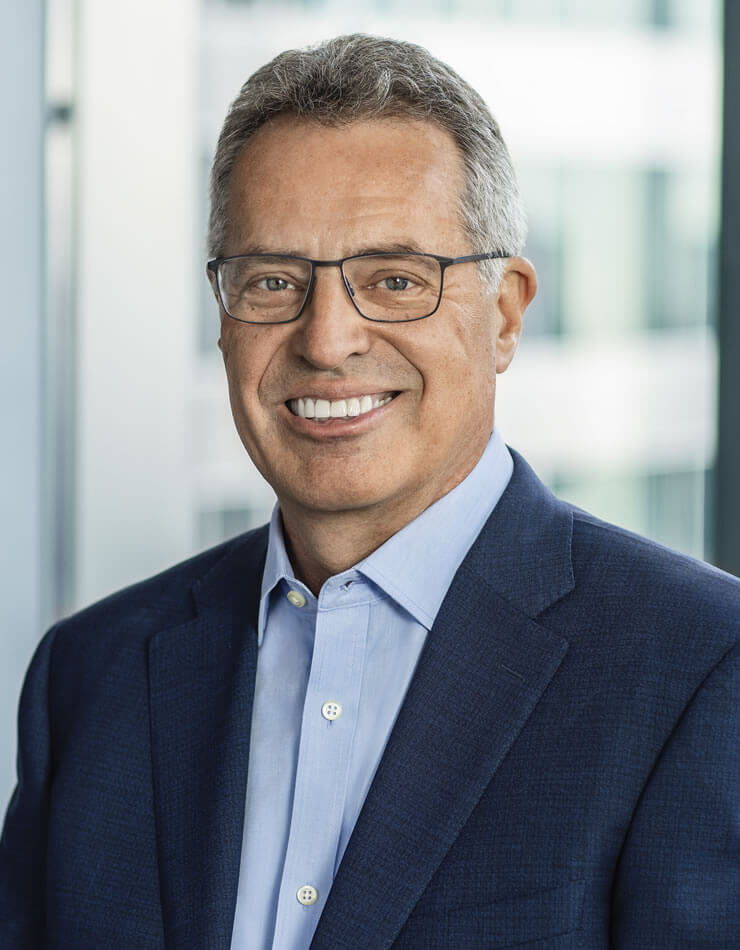Oakmark Global Select Fund - Investor Class
Average Annual Total Returns 12/31/22
Since Inception 10/02/06 6.66%
10-year 7.12%
5-year 1.34%
1-year -22.47%
3-month 12.92%
Expense Ratio: 1.10%
Expense ratios are as of the Fund’s most recent prospectus dated January 28, 2022, as amended August 1, 2022 and October 1, 2022; actual expenses may vary.
Past performance is no guarantee of future results. The performance data quoted represents past performance. Current performance may be lower or higher than the performance data quoted. The investment return and principal value vary so that an investor’s shares when redeemed may be worth more or less than the original cost. To obtain the most recent month-end performance data, view it here.
The Oakmark Global Select Fund (“Fund”) returned 12.9% for the period ending December 31, outperforming the MSCI World Index, which returned 9.8%. The Fund returned -22.5% for the calendar year compared to the benchmark’s return of -18.1% during the same period. More importantly, the Fund has returned an average of 6.7% per year since its inception in October 2006, outperforming the MSCI World Index’s annualized gain of 6.0% over the same period.
HCA Healthcare, the largest operator of for-profit hospitals and related health care services in the U.S., was a top contributor for the quarter. HCA Healthcare reported third-quarter earnings that generally came in slightly above consensus estimates after removing various one-time items, and the company reiterated full-year guidance for 2022. The core business drivers are healthy, and management is executing well, in our view. Next year, the company will face around $500 million in headwinds to adjusted earnings from various non-recurring items, and volume growth looks like it will be around 1-2%, compared to the typical 2-3%, due to having to grow over this year’s higher Covid-19 volumes. We believe underlying volume trends are solid and that both acuity and payer mix are stable. Further, HCA is getting traction with payers on passing through price increases for inflation. Contract labor costs appear to be beginning to ease already, and we believe capacity constraints are likely to improve over the next couple of years. We believe these dynamics, coupled with the flow-through of higher pricing to reflect inflation, should provide tailwinds to adjusted earnings growth.
Amazon, a U.S.-based global leader in e-commerce and cloud computing, was a top detractor for the period. Amazon’s share price fell following its third-quarter earnings report and disappointing fourth-quarter outlook. Management indicated that fourth-quarter revenue will range between $140 billion-148 billion, which is a 5% year-over-year increase (10% increase in constant currency) and 6% below consensus estimates. This deceleration compares to 15% growth in the third quarter. Management attributed weaker third-quarter sales to inflation and its impact on retail consumers’ budgets. We believe this is a macro issue, rather than company specific, since Amazon gained market share during the quarter. Retail profitability for the third quarter was also disappointing at -$2.9 billion, and earnings guidance was only slightly better for next quarter. In response, the company is cutting its retail capital expenditures and implementing various changes to improve margins. However, these changes will likely not generate benefits for some time because cost efficiencies are hard to implement during the holiday season and the company does not want to sacrifice customer services to rush profitability measures. Amazon Web Services (AWS) revenue was up 28% year-over-year and 3% below consensus estimates due to reduced or optimized usage. AWS’ margins were also below consensus and declined 400 basis points year-over-year as the company absorbed operating leverage for customers. While management indicated that AWS’ margins will “fluctuate over time,” the company continues to invest in the business, and its backlog grew 57% year-over-year. Although results and guidance during the quarter were mixed, we remain confident in our investment over the long term because we believe that Amazon’s business drivers are healthy and that its lower guidance is mostly the product of macro issues and timing.
During the quarter, we sold our positions in Citigroup (U.S.) and Fresenius Medical Care (Germany) in favor of names that offer more potential upside, in our opinion.
Additionally, we initiated a position in Capital One Financial (U.S.) during the quarter. Capital One is one of the largest issuers of Visa and Mastercard credit cards in the U.S. The company also has a banking network, offers auto and home loans, and manages assets for institutional and high-net-worth clients. We like that Capital One possesses a strong capital position and a common equity tier-1 ratio that exceeds both regulators’ requirements as well as the company’s own internal target. We appreciate the company’s good underwriting track record and its history of lower than expected loss rates given its business mix and yield. In our view, Capital One’s management team is focused on the long term as evidenced by its consistent reinvestment in technology development, and its online/branch bank provides a stable deposit base with decent funding cost. At roughly 5x 2022 consensus earnings and 1.1x tangible book value per share, the stock trades at a significant discount to the market and our estimate of intrinsic value.
Geographically, we ended the quarter with 55% of the portfolio in the U.S., 34% in the U.K. and Europe, and 11% in Asia.
We thank you for your continued support.
The securities mentioned above comprise the following preliminary percentages of the Oakmark Global Select Fund’s total net assets as of 12/31/2022: Amazon.com 4.4%, Capital One Financial 3.8%, Citigroup 0%, Fresenius Medical Care 0%, and HCA Healthcare 4.8%. Portfolio holdings are subject to change without notice and are not intended as recommendations of individual stocks.
The MSCI World Index (Net) is a free float-adjusted, market capitalization-weighted index that is designed to measure the global equity market performance of developed markets. The index covers approximately 85% of the free float-adjusted market capitalization in each country. This benchmark calculates reinvested dividends net of withholding taxes. This index is unmanaged and investors cannot invest directly in this index.
On occasion, Harris may determine, based on its analysis of a particular multi-national issuer, that a country classification different from MSCI best reflects the issuer’s country of investment risk. In these instances, reports with country weights and performance attribution will differ from reports using MSCI classifications. Harris uses its own country classifications in its reporting processes, and these classifications are reflected in the included materials.
Because the Oakmark Global Select Fund is non-diversified, the performance of each holding will have a greater impact on the Fund’s total return, and may make the Fund’s returns more volatile than a more diversified fund.
Investing in foreign securities presents risks that in some ways may be greater than U.S. investments. Those risks include: currency fluctuation; different regulation, accounting standards, trading practices and levels of available information; generally higher transaction costs; and political risks.
The information, data, analyses, and opinions presented herein (including current investment themes, the portfolio managers’ research and investment process, and portfolio characteristics) are for informational purposes only and represent the investments and views of the portfolio managers and Harris Associates L.P. as of the date written and are subject to change and may change based on market and other conditions and without notice. This content is not a recommendation of or an offer to buy or sell a security and is not warranted to be correct, complete or accurate.
Certain comments herein are based on current expectations and are considered “forward-looking statements”. These forward looking statements reflect assumptions and analyses made by the portfolio managers and Harris Associates L.P. based on their experience and perception of historical trends, current conditions, expected future developments, and other factors they believe are relevant. Actual future results are subject to a number of investment and other risks and may prove to be different from expectations. Readers are cautioned not to place undue reliance on the forward-looking statements.
All information provided is as of 12/31/2022 unless otherwise specified.












